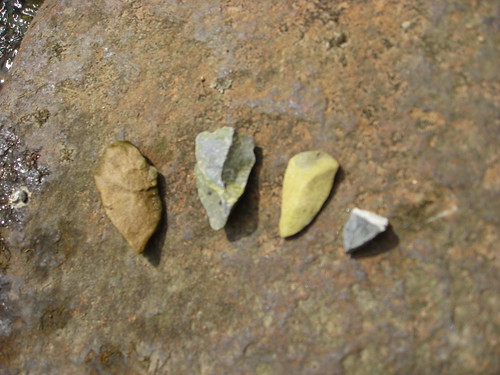A prehistoric settlement, which could date back 11,000 years, has been discovered near in England’s East Midlands region. The site, unearthed by a University of Leicester Archaeological Services (ULAS) team, was excavated in advance of building works at Asfordby, near Melton Mowbray, Leicestershire.
The team’s experts believe the site would have been inhabited by hunter-gatherers, who journeyed to Britain over the icy remnants of a giant super-river we reported yesterday (sadly they weren’t quite around at the time of Stone Age GPS). Britain would only become an island thousands of years later, when the final chills of the last ice age subsided.
The dig’s first work found flint blades embedded in Mesolithic soil, buried by much later ploughsoil. Thanks to the intact prehistoric soil, the group were confident they could find a wider range of objects, casting a light over the Midlands’ earliest residents.
Work then began on a 10m patch of land, which produced startling results. A charcoal-rich former hearth was found, alongside postholes and arcs of stone which suggest tent-like structures. Yet it was the worked flint haul which provided the team with their biggest coup. Over 5,000 chunks of the stone were recorded, including those used as tools, blades, flakes, scrapers, piercers and arrowheads.
Further work is scheduled at the site, which promises to delve deeper into the domestic and hunting lives of the Mesolithic residents of Leicestershire.
Bones excavated will be examined, allowing us a unique insight into the diets of our prehistoric British ancestors.
The origins of Europe’s earliest settlers is one of anthropology’s hottest topics. Some reports suggest modern Scandinavians are the descendants of Stone Age immigrants, and recent DNA evidence claims Europe’s first farmers weren’t related to hunter-gatherers or the farmers of the Cradle of Civilization.
As the above map shows, routes and landmasses throughout Europe have changed dramatically over the past few thousand years – Neanderthals have even been discovered at the bottom of the North Sea, widely believed to have been an ancient super-highway through the continent’s northern climes.
